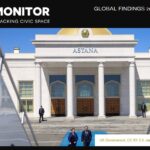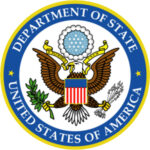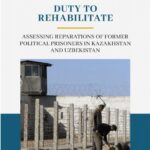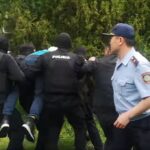The European Parliament ,
– having regard to its previous resolutions on Kazakhstan and the Central Asian Republics,
– having regard to its resolution of 20 February 2008 on an EU Strategy for Central Asia(1) ,
– having regard to the European Union’s Strategy for a new partnership with Central Asia, adopted by the European Council on 23 June 2007,
– having regard to the Commission’s Strategy Paper for Assistance to Central Asia 2007-2013,
– having regard to the conclusions of the tenth meeting of the EU-Kazakhstan Cooperation Council,
– having regard to the conclusions of the eighth EU-Kazakhstan Parliamentary Cooperation Committee meeting in Brussels on 31 March 2008,
– having regard to the Partnership and Cooperation Agreement between the EC and Kazakhstan(2) , which entered into force on 1 July 1999,
– having regard to Rule 122(5) of its Rules of Procedure,
A. whereas relations and cooperation between the EU and the Republic of Kazakhstan are steadily growing at all levels; whereas Kazakhstan plays a crucial role with regard to the stability and security of Central Asia and the economic development of the region as a whole,
B. whereas Kazakhstan will, in 2010, take over the chairmanship of the Organization for Security and Cooperation in Europe (OSCE); whereas that position will give the country a higher profile and more responsibility in the fields of democracy and human rights; whereas the OSCE has urged Kazakhstan to deepen democratic reforms before taking over the chairmanship,
C. whereas, in spite of that important international task, Kazakhstan’s internal situation has been marred, over the last few months, by an increase in media restrictions and a series of controversial prosecutions,
D. whereas on 3 September 2009 Yevgeny Zhovtis, director of the Kazakhstan International Bureau for Human Rights and the Rule of Law and prominent human rights defender, was convicted of manslaughter for hitting and killing a pedestrian with his car on 26 July 2009 and was sentenced to four years in a penal community,
E. whereas on 27 July 2009 the police investigation was opened and Yevgeny Zhovtis was named as a witness; whereas on 28 July 2009, Yevgeny Zhovtis’s status in the investigation was changed to that of a suspect, but, in contravention of Kazakh law, his legal team was not informed of that development until 14 August 2009,
F. whereas the OSCE Office for Democratic Institutions and Human Rights has stated that ‘questionable procedures may have violated Zhovtis’s right to a fair trial as guaranteed by the constitution of Kazakhstan, the country’s OSCE commitments and fundamental international standards’,
G. whereas at OSCE meetings in the past, Yevgeny Zhovtis detailed human rights abuses in his country, raising doubts about its suitability for the chairmanship of an organisation dedicated to upholding democratic principles,
H. whereas serious concerns have been expressed in the past about the trials and subsequent imprisonment of other Kazakh human rights activists, including Ramazan Yesergepov and Sergei Duvanov,
I. whereas in June 2008 and again in May 2009, in connection with his country’s upcoming chairmanship of the OSCE, the Kazakh Foreign Minister, Marat Tazhin, pledged to strengthen and improve respect for human rights in Kazakhstan,
J. whereas Article 2 of the EU-Kazakhstan Partnership and Cooperation Agreement requires respect to be shown for democracy, the principles of international law and human rights,
1. While not questioning the independence of the judicial system, which is a key element of any democracy, expresses great concern about the conduct of the investigation into the unfortunate traffic accident and of Yevgeny Zhovtis’s subsequent trial, and draws attention to allegation that evidence in his defence was not allowed during the trial;
2. Calls on the Kazakh authorities to carry out immediately and with full respect for transparency and the rule of law a second full and fair investigation into the circumstances surrounding the accident, and to review Yevgeny Zhovtis’s conviction and sentence accordingly;
3. Urges the Kazakh authorities to provide official details about the case of Yevgeny Zhovtis and to ensure due process, including the right to appeal in line with Kazakh law;
4. Draws attention to the strong reservations voiced by human rights organisations about the Kazakh Government’s real commitment to progress when the decision to give the country the chairmanship of the OSCE was announced in 2007, and expects the Kazakh authorities to make every effort to make tangible progress in improving democratisation and human rights before taking over the chairmanship of the OSCE;
5. Calls on the Commission, in this connection, to increase EU assistance to and cooperation with Kazakhstan in those fields, in order better to prepare the Kazakh Government to take up its important international task;
6. Urges the Council to take a firm stance in raising this case with the Kazakh authorities and, in particular, to address Yevgeny Zhovtis’s case within the framework of the EU-Kazakhstan human rights dialogue, the second round of which is scheduled for 21 October 2009, and the EU-Kazakhstan Cooperation Council meeting in mid-November 2009;
7. Urges the Commission to reinforce its projects and programmes in Kazakhstan under the European Instrument for Democracy and Human Rights;
8. Instructs its President to forward this resolution to the Council, the Commission, the UN Secretary-General, the EU Special Representative for Central Asia, the Organization for Security and Cooperation in Europe, the Council of Europe and the parliament, government and President of Kazakhstan.
(1) OJ C 184 E, 6.8.2009, p. 49.
(2) OJ L 196, 28.7.1999, p. 3.















